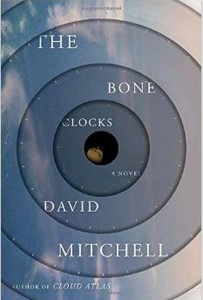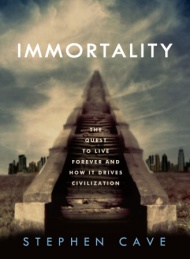I wrote this in 1988. I was 40 years old and I don’t recall what prompted this musing. I’ve done a fair amount of reading on eastern philosophies in the past 30 years and my thinking/understanding has evolved. But only a little.
Reincarnation. The word conjures up all sorts of mystical images. While I don’t recall any past life as a soldier at the Little Big Horn, it’s sort of like “the undiscovered planet” that makes sense of the orbits of the other planets.
As I think about the idea of a past existence, I feel a fondness for this “earlier me”. A sense of gratitude for whatever spiritual progress he was able to achieve. At the same time, I feel a sense of anticipation or expectation for my “next life”. And some responsibility to that future self. I’d like to move him (or her?) along as far as I can on this “cosmic lap.” To move him closer to…a perfect consciousness? Nirvana?
Mixed in with all of that is a sense of relief that I don’t have to complete everything in this lifetime. This is not the only shot I’ll get. And this awareness is vital because we all know –consciously or subconsciously– that we won’t “get it all done” in a spiritual sense. We hope (and work) for progress but a single lifetime seems hopelessly short.
So, how close am I? What if I’m only a single lifetime (only?) away from reaching this level of consciousness? Suppose I progress sufficiently in what I have left of this lifetime that I’m within “striking distance” in the next?
It’s possible I’m on my first “existence” and have many to go. Or I might have lived thousands of lives and have but a few remaining. The point is, it doesn’t matter where you are on this journey. There’s no race and no time limit. You finish when you finish and everybody finishes. And that’s a liberating thought. There’s no Heavenly Stopwatch ticking away. No point at which you must throw in the towel and face the fact you’11 never be “good enough” to get through those Pearly Gates. Eternity is not pass-fail.
Most of us fear death. We fear the unknown… what might be waiting for us. Most Western theology offers only heaven or hell. Or nothing. Poor choices, all.
What if we’re just as frightened of “being born” as we are of dying? Once you accept the idea that our souls or spirits or consciousness do not die, but are eternal, you can imagine how frightening it might be to face being born into a new existence. There is symmetry here that feels right. If my soul or consciousness is eternal, can it really be that it magically sprang into existence at the moment of my conception? One instant it didn’t exist, the next it did? It came from nowhere, out of nothing? No. I think eternity stretches in both directions.
I wish I could tell the “earlier me” that things worked out fine. There was nothing to fear. I don’t remember “dying” or being born and this life has been terrific. And why not assume the “next me” will do just as well? And will be a little more spiritually evolved thanks to the progress “this me” is making.
Why don’t (most of us) remember our “past lives?” I think it would be an awful distraction. Our purpose is to live each moment of this life fully. To grow through each day’s experience. Not to dwell on and puzzle over a life already lived. Lessons already learned. So we remain unaware of past and future lives, focused on the only life we can ever really live, this one.
And what about Heaven? Can it really be the cosmic end-of-the-line we’ve been taught? Have you ever really believed in this Sunday School heaven with streets of gold and God sitting on his judgment throne? Isn’t there more hope, more promise, in the ongoing spiritual journey?
As for Hell, we are all quite capable of creating our own, anytime, anywhere. And we do.
The idea of timeless existence fills me with a wonderful sense of anticipation. If, after 40 years, I’ve learned to stop worrying, does that mean I can go on to new challenges in this life (and the next)? If I’ve lived a life afraid to take chances, to risk, for fear of failure, will I conquer that fear next time? Can I take the spiritual progress f this life on to the next one? It seems right, doesn’t it?
And equally logical that I’ll take unsolved challenges with me as well. But how many people do you know who expect to leave their enemies behind when they go to “their reward”. Smug in the knowledge those enemies are now paying for their sins.
No, I think He or She would say, “Don’t talk to me about right or wrong, your job is your own spiritual growth. As long as you feel hate, or anger, or guilt, or worry… keep working on it. And to help you, I’ve got a limitless number of real-life situations for you to practice on.”
Does this mean I can coast through this life, dodging spiritual challenges, procrastinating on into eternity? I don’t think so. I’d love to hit that next life free and clear (to the extent that is possible). Unencumbered. I want to put worry and fear and self-doubt behind me now. I want the “next me” to have every opportunity for continued growth. Let’s drop some of this baggage. God knows how many lifetimes I’ve been hauling it (for those who need another reason for not recalling past lives).
The idea of the spirit or consciousness living on past what we call death raises the question of friends and loved ones living (again) among us. Should be sad we don’t recognize them nor they us? No.
First, they have new lessons to learn and new people and experiences will help. In our own lives we tend to find and remain in comfort zones. We do the same things, with the same people, throughout most of our lives. Only when we force ourselves (or are forced) into new situations, do we see real growth and progress. It would be like staying in the first grade for 12 years. We know the teacher and our classmates and the lessons. It’s safe and comfortable. But instead, we are forced to move on to new schools, new rooms, new teachers and classmates, new lessons. Secondly, and perhaps even more importantly, there is a unity of all consciousness. The essence of each of us, exists in all of us. That essence is part of the reborn consciousness of friends and loved ones. One more lesson: Look for and recognize the things we loved about that person, in all people.

 Just finished
Just finished 